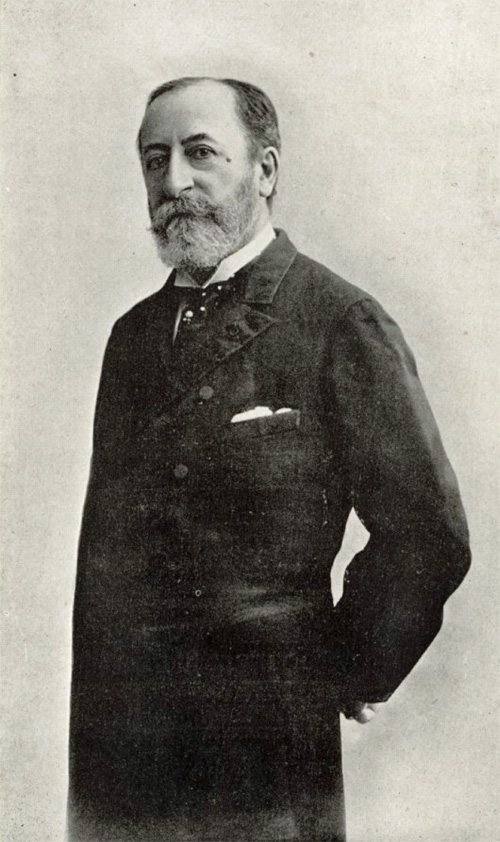 Camille Saint-Saëns (1835-1921) – Composer of the Beloved Carnival of the Animals and Much More
Camille Saint-Saëns (1835-1921) – Composer of the Beloved Carnival of the Animals and Much More
Edited by Barry Lenson from Content Generated by the Claude AI app
When music lovers hear the name of the composer Saint-Saëns, their first thought is often, “Oh yes, he composed The Carnival of the Animals.” Next, they will probably start to hum the enchanting melody of “The Swan” from that Carnival. And if they think about Saint-Saëns for a moment longer, they might recall the ravishing aria “Mon cœur s’ouvre à ta voix” from his opera Samson et Dalila, sung by Dalila to Samson just before she snips his hair.
Those might be “the greatest hits” that we consider first when we think about Saint-Saëns, but they are only the beginning. So who was this great French composer? Let’s take a closer look.
Who Was Camille Saint-Saëns?
Charles-Camille Saint-Saëns (1835-1921) was one of France’s most influential composers of the Romantic era, known for his technical mastery, melodic gift, and contributions to nearly every musical genre. Born in Paris to a working-class family, he displayed extraordinary musical talent from an early age, beginning piano lessons at age two and composing his first piece at three.
Saint-Saëns received his formal education at the Paris Conservatoire, where he studied organ and composition. He became one of the finest organists of his generation, serving at several prominent Parisian churches, including the Madeleine from 1857 to 1877. His reputation as a virtuoso pianist was equally impressive.
Beyond his performing career, Saint-Saëns was a passionate advocate for French music during a time when German composers dominated the classical landscape. He co-founded the Société Nationale de Musique in 1871 to promote French composers and was instrumental in reviving interest in the works of Bach and other Baroque masters in France.
Saint-Saëns was also a man of broad intellectual interests. He was an accomplished writer, producing poetry, plays, and essays on musical and scientific topics. His curiosity extended to astronomy, mathematics, and archaeology, making him one of the most well-rounded cultural figures of his era.
The composer traveled extensively throughout his life, spending considerable time in Algeria and other parts of North Africa, which influenced some of his later compositions. He continued composing actively well into his eighties, maintaining his creative output until shortly before his death in Algiers in 1921.
Saint-Saëns’ music is characterized by its clarity, elegance, and masterful orchestration. While he composed in a more conservative style compared to some of his contemporaries, his works remain popular for their melodic beauty, technical brilliance, and sophisticated craftsmanship.
Exploring the Music of Camille Saint-Saëns on Classical Archives*
Symphonic Works
Symphony No. 3 in C minor, Op. 78 (The “Organ Symphony” (1886) – His most famous and popular symphonic work, featuring a prominent organ part.
Danse Macabre, Op. 40 (1874) – Popular symphonic poem based on a poem by Henri Cazalis.
Suite Algérienne, Op. 60 (1880 ) – A colorful suite that reflects the composer’s interest in the music and culture of Algeria.
Concertos
Piano Concerto No. 2 in G minor, Op. 22 (1868) – One of his most performed concertos.
Piano Concerto No. 4 in C minor, Op. 44 (1875).
Wedding Cake – Valse-Caprice, Op. 76 (1885) – A charming work for piano and orchestra.
Operas
Samson et Dalila, Op. 47 (1877) – His most successful and enduring opera, known for Dalila’s aria “Mon cœur s’ouvre à ta voix.”
Chamber Music
Le Carnaval des animaux (The Carnival of the Animals) (1886) – An utterly charming suite for piano and small instrumental ensemble, including the famous “Le Cygne” (The Swan.)
Piano Quintet in A minor, Op. 14 (1855).
* Please note that to listen to the recordings cited in this newsletter, you must be a member of Classical Archives. If you are not yet a member, we invite you to join now. Free 14-day trial memberships are now available.









